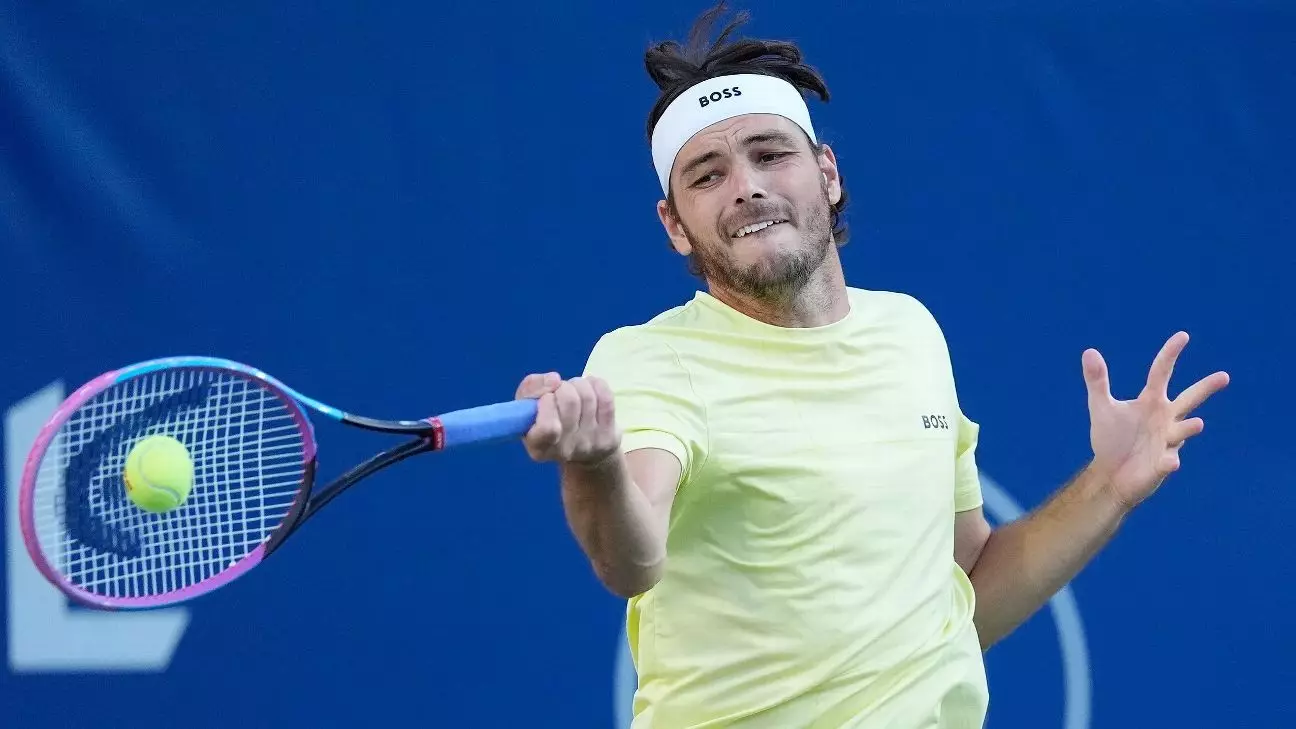In the ever-evolving landscape of professional tennis, physical prowess alone no longer guarantees victory. Today’s athletes understand that mental resilience is just as crucial as their technical skills. The recent matches at the National Bank Open exemplify this shift, showcasing players who push through adversity with unwavering focus. Take Taylor Fritz, for instance—despite facing towering Canadian Gabriel Diallo, Fritz maintained composure and strategic clarity, winning in straight sets. His acknowledgement of the supportive crowd highlights a nuanced understanding: mental strength transcends external hostility; it stems from inner confidence and adaptability.
This mental discipline is particularly vital in high-stakes moments—those tense deciding tiebreaks or grueling third sets—where emotionally charged players often unravel. The trajectory of players like Fritz and others reveal that cultivating mental toughness is now a fundamental aspect of competitive success. It isn’t simply about overpowering opponents physically but about mastering one’s mind, resisting distractions, and maintaining a positive outlook amidst pressure.
The Strategic Edge: Playing with Intent and Confidence
The performances at the tournament also underscore how strategic mental states translate into more aggressive and decisive play. Andrey Rublev’s victory highlights this, with his assertion that he played more aggressively as the match progressed, reducing errors and seizing control of the game. Such mental shifts enable players to elevate their game, transforming scattered energy into focused effort. It’s a testament to how belief in one’s strategy and self-assurance can turn the tide against formidable opponents.
Moreover, players like Frances Tiafoe and Ben Shelton exemplify resilience in clutch moments, navigating tight sets and close tiebreaks with a calm that belies their age or experience. Shelton’s victory in a tight third-set tiebreak, in particular, reflects a mental toughness that allows him to perform under pressure and capitalize on critical moments. These instances prove that mental resilience is not innate but cultivated—a psychological armor that players polish through experience, focus, and unwavering confidence in their game plans.
The Unsung Influence of Absences and Competition Dynamics
Interestingly, the tournament’s landscape is affected by notable absences, including top-ranked Jannik Sinner and Carlos Alcaraz. Their withdrawal not only alters the competitive terrain but underscores the importance of mental resilience in navigating setbacks such as injuries or fatigue. When elite players step back, others seize their opportunities, exemplifying how mental grit and readiness can define careers beyond natural talent.
The ongoing absence of some top players also emphasizes a core truth: tennis is as much a mental game as it is physical. Those who maintain focus, stay motivated, and adapt to changing circumstances—whether it’s an injury or a shifting draw—are often the ones who leave a lasting mark. As the sport continues to evolve, mental strength will remain the defining attribute distinguishing champions from also-rans. The players who embody resilience and confidence will not only succeed but also inspire future generations to embrace the profound mental discipline that modern tennis demands.


Leave a Reply